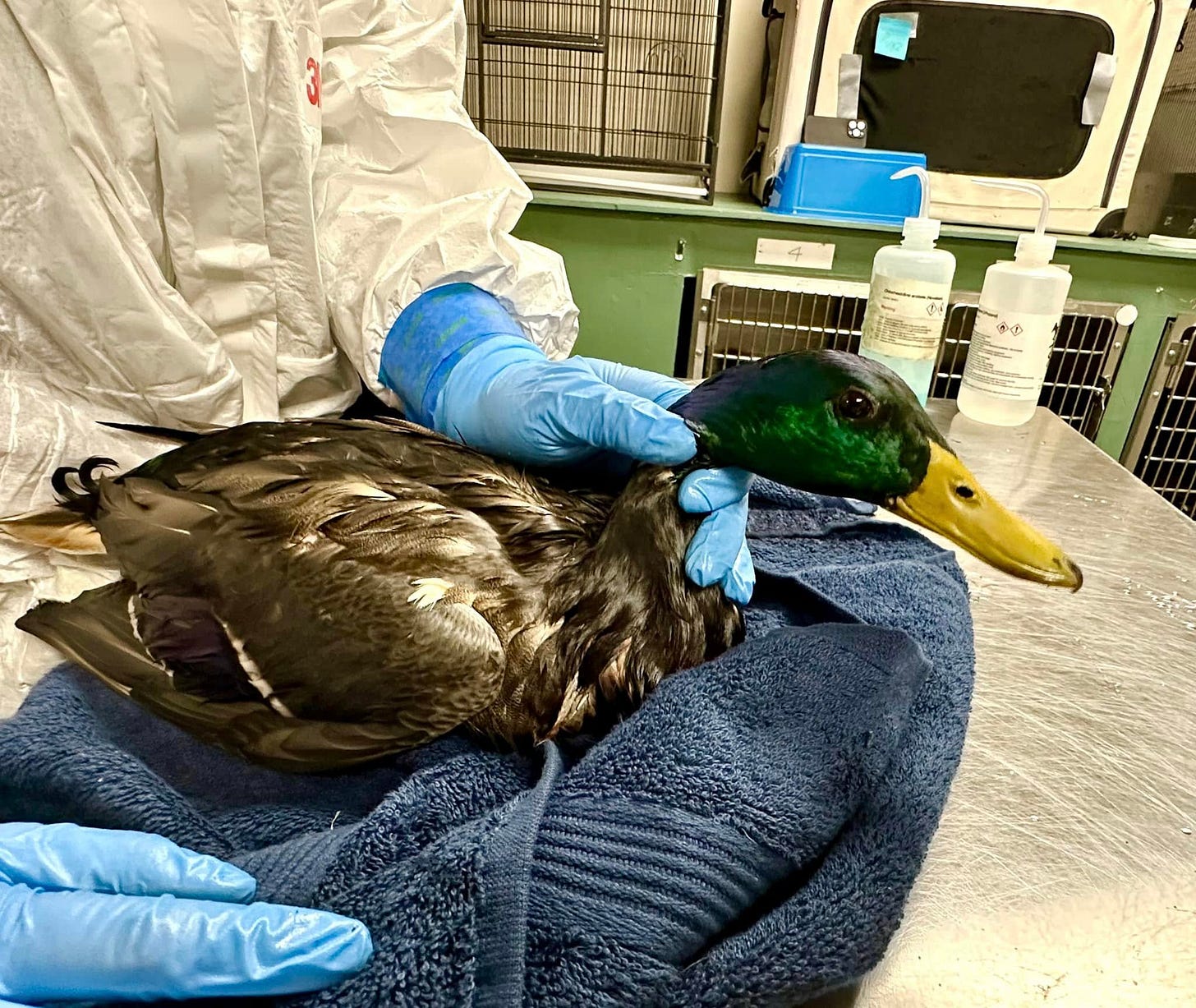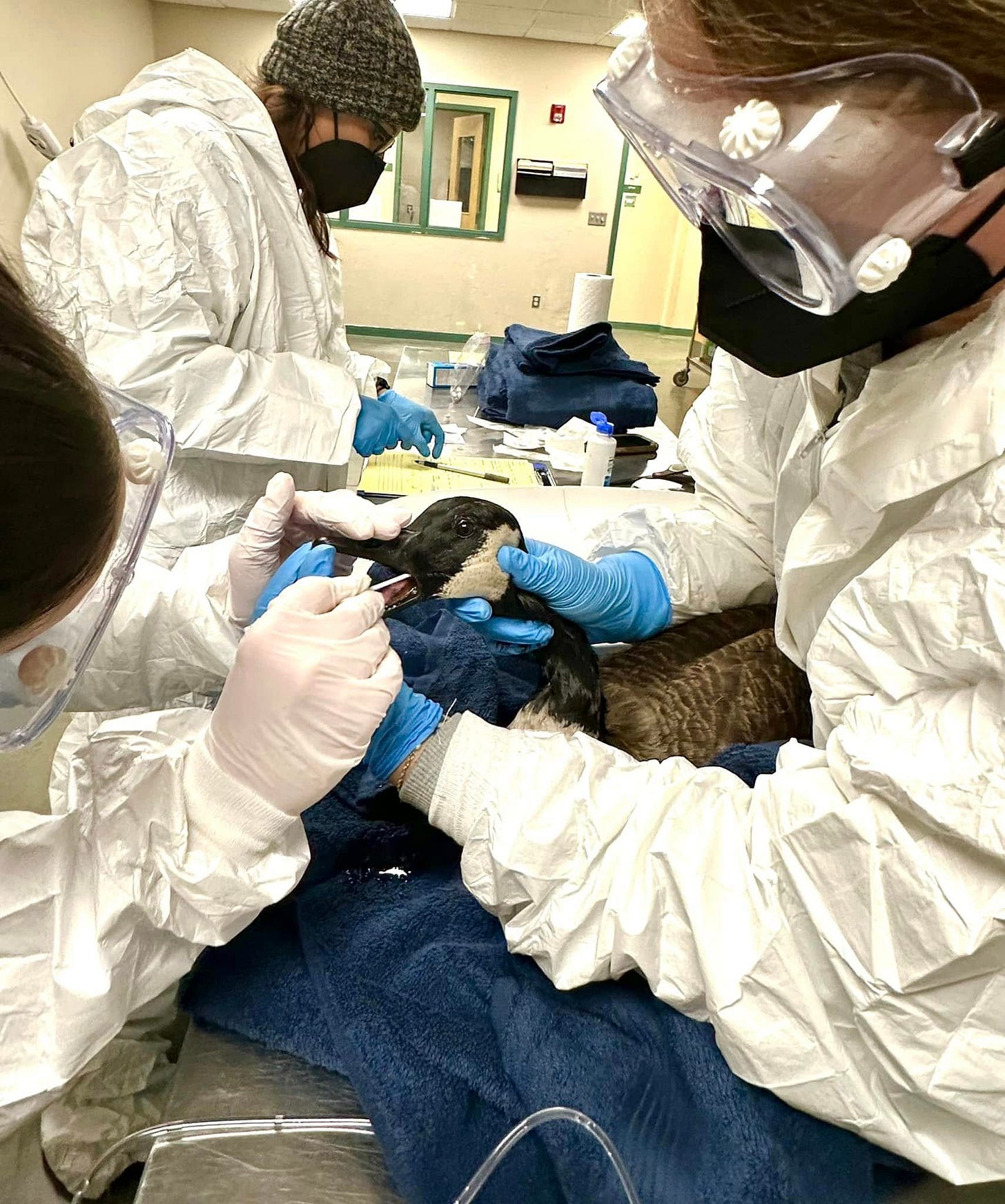Oil Spill Threatens Local Wildlife: Emergency Response Underway in Massachusetts
"So far there are 12 birds at New England Wildlife Center's hospital, 8 on the way and dozens more to be rescued," the organization stated in their Monday afternoon update.
In a developing environmental incident, the New England Wildlife Center (NEWC) informed their community of an oil spill in Boston's Muddy River, which they've been helping rescue wildlife since Sunday evening, December 8th, 2024. According to updates from the wildlife organization, what is suspected to be heating oil has been released into the river, though the exact quantity and source remain under investigation.
The NEWC reports that their team, working in collaboration with multiple state and local agencies, has already rescued numerous affected waterfowl. "So far there are 12 birds at New England Wildlife Center's hospital, 8 on the way and dozens more to be rescued," the organization stated in their Monday afternoon update. The rescue operation involves staff members in full hazmat gear, highlighting the hazardous nature of the situation.
The wildlife center has detailed their treatment protocol, explaining that their immediate priority has been to "clear airways and flush oil from the eyes and mouth, and provide heat support." The organization notes that the washing process for each bird takes approximately an hour, using a carefully measured approach with Dawn soap.
Public safety remains a key concern, with NEWC explicitly requesting that civilians avoid attempting any wildlife rescue attempts. "It is not safe for folks who are not hazmat trained and trained in oil spill response to come to try to rescue," the organization emphasized.
The response effort has brought together multiple agencies, including the Boston Parks and Recreation Department, Massachusetts Division of Fisheries & Wildlife, Massachusetts Department of Environmental Protection, Massachusetts Environmental Police, and the Departments of Public Works. The NEWC, which is a nonprofit, is coordinating these efforts while maintaining proper evidence-collection protocols in case of potential litigation.
Recovery efforts are ongoing, with the ultimate goal of releasing the affected wildlife back into their natural habitat. According to NEWC, once the birds are thoroughly cleaned, they will begin the process of re-waterproofing their feathers in a saltwater pool at their Cape Cod facility.
The situation continues to develop, and the New England Wildlife Center has promised to provide additional updates as the rescue and recovery efforts progress. For the most up-to-date information, visit the New England Wildlife Center's Facebook page at https://www.facebook.com/NewEnglandWildlifeCenters. To donate towards the New England Wildlife Center's mission and the work they do, visit their website at https://www.newildlife.org/.




